Lord, Have Mercy: The anatomy of disaster and whether God’s wrath is really what we assume it to be.2/15/2024 As I prepare for our next sermon series, Lord, Have Mercy, one of the two questions I've been wrestling with is, how can God be good and allow bad things to happen? I think that everybody can agree that bad things are happening today. In a world filled with human injustice, every kind of abuse, extortion of vulnerable people, food insecurity, economic chaos, or murder and genocide - it would be difficult to say that the world is void of bad things. I will let the philosophers debate whether the bad things we know to be happening are unavoidable, products of human consequence, or can be solved. I do know that bad things were happening in 586 BC, too. History tells us that Jerusalemites felt threatened because a foreign power, Babylon, surrounded their city to intimidate them into surrender. There was also a food crisis happening. Food insecurity quickly gave way to no food for anybody to eat. The hand-to-hand combat began. The government was overthrown. The king was arrested, impeached, and sentenced. Masses of people were murdered. Buildings were burned. Homes were destroyed. People with potential were captured and forced into slavery. Poor people were extorted and left to work the land. You can check out all the details in 2 Kings 25 and a Near East History volume (start with searching "First Temple Period"). Did God allow these bad things to happen? It appears that He did. So, how can God be good and allow bad things to happen? There are two faith perspectives (biases) that shape how I am thinking about this question. The first bias is that God created human beings with free will or the conscious control of our choices and actions. The Christian scriptures tell us how human beings are made in God's image - and God has conscious control of choices and actions. This bias also leans into the conviction that God is, by nature, good (like the question assumes). As a result, human free will enables us to consciously control our choices and actions to do good. You can read Genesis 2 for the complete picture. If you think about it, if I paid my wife to say "I love you" and to be good to me, we could say she's manipulated, coerced, or obligated to love and be good to me - but she isn't free to do so. Her payment controls her choices and actions. It isn't love. It isn't good. And it isn't God-like. The second bias is that free will was compromised by a consciously controlled choice to listen to and act upon something not-so-good. You can read Genesis 3 for the details. It was like the human will was captured, lured, coerced, and manipulated to make this not-so-good choice. From that time on, free will remain free, and at the same time, bound by God's goodness or everything that was not so good (usually self-seeking or painful, evil, and destructive). I believe that's why our consciences sometimes feel "heavy" or "burdened." It's also why we are often encouraged to choose to set our minds on things above (Colossians 3:2) and renew our minds (Romans 12:2). So, bad things result from not-so-good choices made by ourselves or others. These choices lead to consequences, affecting not just us but many other people. Sometimes, even good people make mistakes or overlook the impact of their decisions. Pride and ego can cloud our judgment, causing unintentional harm. It's part of being human - we can't always make perfect choices, which is why apologies are necessary. Other times, bad things happen because of someone else's actions. It's unfair, beyond our control, and leaves us feeling victimized. But even though we think about the consequences of other people's not-so-good choices, we're not responsible for choices made by others. Accountability means holding those who make choices accountable for good and bad outcomes. Ultimately, every choice we make carries consequences, affecting not just ourselves but often many others as well. It's a reminder of the ripple effect of our actions in the world. And that's why bad things happen to good people. I've heard well-meaning Christians say that the "bad things" that have happened in the past and are happening today are really God's wrath poured out on us. I would disagree (though I am open to hearing your perspective in the comment section below)… and here's why. If God's wrath is determined by a cause-and-effect relationship, then we have a God I can control through my free will. I have read many commentators who would say that what was happening in 586 BC and what is happening today is God's wrath being poured out on people for their "ungodly" choices. In other words, what they're saying is that the script would go like this: "I love God, I do this for God and for others, and now God owes me good things" or, "I disobey God, I didn't do this for God, I didn't fully do this correctly for others, and now I lose something and have bad things happening to and around me." That's not a God of grace and love - it's a God of manipulation. Now, I'm not saying that God's wrath doesn't exist. It very much does. The Hebrew scriptures describe it as "God's nose is burning." The Greek scriptures describe it as retribution, anger, and getting justice (leveling the playing field). The English language defines wrath as extreme anger, like losing your temper. I believe God can be both 100% love and still have wrath (remember, I can't control God). Interestingly, God controls His anger resulting from his broken heart over human sin. His wrath is a consequence and not a punishment. If you are a parent, you probably understand the distinction. Consequences are a result of positive or harmful behavior. Of course, every choice we make has a good or not-so-good consequence. On the other hand, punishment is the intentional emotional or physical pain given to somebody else to force them to behave or do what they want. Whether it is 586 BC, today, or tomorrow, God is not inflicting emotional or physical pain on anybody to force them to behave or do what He wants them to do. Again, God is not a God of manipulation. But we do see God's wrath (and I hope you might, too) as Jesus dies on the cross. Jesus died, so we see how much God 100% loves us. And, yes, as Jesus dies on the cross, 100% of God's anger is placed on Him. It equals the playing field by forgiving all sin. It cools God's burning nose. It is payment for retribution for everything humanity had robbed God of with their choices and actions. The entire sacrifice of Jesus for the sins of the world is 100% God's wrath so that we can experience 100% of God's love. But God demonstrates his own love for us in this: While we were still sinners, Christ died for us. Since we have now been justified by his blood, how much more shall we be saved from God's wrath through him! (Romans 5:8-10). I'm curious what you've heard about why bad things happen to good people and God's wrath. You can share your comments below.
2 Comments
If Lent isn’t in the Bible, why does it matter (especially today)?
The Christian community calls the 40 days (sans Sundays) before Easter lent. Lent begins on Ash Wednesday, the day after Mardi Gras. The previous year’s palms used to praise and honor King Jesus on Palm Sunday are burned and mixed with oil, burned to ashes, and turned to dust. We are reminded how easy it is to fall back into old habits, sinful behavior, senseless suffering, and tasteless temptations. And while I know not everybody celebrates Mardi Gras, I think we all (myself included) can admit that we give into our temptations. We indulge ourselves, rationalize our sins, and give up self-control. And if that’s us, then we need Lent more than we know. Between Ash Wednesday and Easter, we track the story of Jesus through the same temptations we experience. Instead of giving in, He overcomes. We follow Jesus through the same desert-like experiences of being lost and wandering aimlessly. Instead of getting lost, Jesus always finds His way back to God. We rebuild trust with Jesus. So, we recommit to waving the Palms again and saying to Jesus: “We want to return to You, love You, and follow You.” With the disciple Peter, we say, “Jesus, we will never betray you,” only to find out that we, like Peter, cannot help but betray the one we love. And then, on Maundy Thursday, Jesus hugs us, feeds us, encourages us, and explicitly tells us, “Love one another”. He’s then betrayed by his friend and, on Good Friday, is beaten, made fun of, wrongfully accused, and dies by crucifixion. Each of us can relate. The ones who deserve a beating are freed. The bullies are exonerated. The guilty are acquitted. And the ones who deserve to die become the murderers and live on. We leave Lent reminded that the world isn’t fair. That justice is messy. And perhaps this is why we can’t have nice things in this life. But here’s the truth - lent ends at the cross with the words, It is finished. And on the green hill far away where Jesus is taken down off the cross to be buried, Lent ends. It’s easy to think that Lent is only filled with darkness. But, a source from Wikipedia notes that the word Lent comes from the Old English word, lencten, which means spring season. So, perhaps Lent is not meant to be a destination but only a pass-through to what is beyond. There is much darkness surrounding life today. Economic uncertainty. Political chaos. Tech take-overs. Anger and rage. And then there’s still our temptations, indulgences, and loss of self-control. It’s like our lives are stuck in never-ending Lent. And that’s why we need to pass through Lent… together. We can find our way back home to Jesus - a home where we can be together and remind each other that we are not alone in our Lent. Jesus is with us. God’s promises are still valid. And our Lent will end, and Easter will be here soon. And Easter will not disappoint. Like so many others at the end of the year, I am reflecting on what God has been up to in the last 363 days of life. Here are some reflections I’m processing as we close out 2023 and move into 2024. How has God worked in my life this past year? God has taught me how much belonging matters. In January, I traveled to Southeast Asia with another Our Savior family to visit our church friends, Rachel and Jeff. They’re a huge part of our church family and it was wonderful to share 10 days of prayer, ministry, and strategizing together with their friends. On the way back home, Beth joined me for my first-ever experience in South Korea. I’ve spent the rest of the year learning how that experience changed me. Walking the streets of my hometown and experiencing the diversity of reactions about Korean adoption fostered a sense of belonging. While some were interested in my “American experience”, most considered me having a place in Korean culture and society. Why is that important? Because belonging begins to soothe the pain of the past. Adoption is not necessarily a widely favorable part of Korean history. For most, it’s a strike of shame. Even the government is attempting to create space for Korean adoptees who forfeited their citizenship to reclaim it. Belonging doesn’t fix anything; but it does provide a balm to an aching wound and a way forward. How did I see God working in others? I saw God working with others when young people were prioritized. Why? Because when young people grow, everybody wins. This past year, at least 12,810 students received food through Backpacks for Kids. That’s incredible! Earlier this year, I learned that quite a bit of the food is taken home and is shared with their siblings, and all the other adults in their home. That’s what I’m talking about when I say that every generation wins when we focus on young people. I see the same is true with faith formation.
Every generation wins. We all grow. We all serve. We all connect. We all love God, love people, and live like Jesus, together. I’m reminded of what I heard on a recent podcast: “Young people are like salt. When they’re included, they make everything taste better.” Looking forward, what is my hope and prayer for us as a church in 2024? I’m looking forward to seeing more generations of people join Jesus on his mission, where they live, work, learn, and play. What has God been up to in your life this year? Send me an email at [email protected] or share it at oslc.com/tellingthestory.  A generally known truth about life is that what happens in your home, workplace, school, church, and community is to some extent a reflection of what’s going on in the culture. And when it comes to honor, whether you’re a person of faith, some faith, or no faith - how we understand and give honor to others is changing rapidly. Heading into Veterans Day Weekend, there are 3 realities worth noting, especially for those who want to honor people the way Jesus did. First, the bad news. Then, some encouragement. People choose to dishonor others for a variety of reasons. The bad news is that oftentimes dishonor is personal. Personal Reason #1: Human beings get jealous. It’s normal for us to want achievements, success, and recognition. When others receive the spotlight for the same, similar, or perception of “less than our performance”, we get jealous. And, to boost our sense of self, validate our work, or perhaps passively say, “What about me”, jealousy sometimes is expressed as dishonor. Whether it’s a promotion at work, a report card in the classroom, or the feelings that money, benefits and perks, and financial compensation bring - dishonorable behavior lives in the tension between our sense of being enough and wanting what other people have received. Personal Reason #2: Human beings have an internal drive for power and control. Dishonorable behavior can sometimes look like manipulation or deception to maintain dominance over others. A good analogy is that we can remain in personal control and exude power over others by handcuffing them with our dishonorable words, attitudes, or behaviors. We see this all over the political arena. The only way out of the handcuffs is by using the keys of affirmation and encouragement. Personal Reason #3: Bias and prejudice are part of human nature. Unconscious bias has recently become a buzzword, especially in light of racial tension in the Western world. And while the term can be weaponized, every human being has indeed known and unknown attitudes and opinions shaped by one’s knowledge, environment, and life experience. Oftentimes expressed in the arenas of race, religion, and gender, every kind of stereotype contributes to dishonorable behavior. The ongoing war/genocide in the Middle East is a front-and-center example of what this looks like on a global scale. If I look at the times I have dishonored others, many times it is a reflection of my internal fear combined with my insecurities or assumed beliefs. That’s human nature. The bottom line is that dishonor is rooted in the sin-part of our human nature. As early as the late 300s, Augustine of Hippo said that dishonorable behavior is “man curved in on himself” and simply called it an expression of pride. Then, in the early 1900s, Karl Barth expanded this understanding beyond pride describing sin as human attempts to become our own authority or god. What does this all mean? As dishonorable as humans can be, we still have a sense that honor is a good thing. For example, this weekend is Veterans Day. Small towns and large cities will celebrate with parades, ceremonies, award programs, luncheons and dinners, and rousing anthems to honor military personnel who continue to live and serve among us as civilians. No doubt, there would be a public uprising should someone be dishonorable during one of those events. So, deep inside, there is a desire to honor others… we just don’t always get it right. More than ever, Jesus followers can lead the way when it comes to cultivating honor in our homes, workplaces, schools, churches, and communities. Jesus has already planted the seeds… we get to join Him in His work. Some Final Thoughts Honor is a good Bible-word, isn’t it?
Honor will look different for each person. And at the same time, if you want to know what honor looks like, look at Jesus.
I encourage you to talk to someone about what this looks like for you. It could be a family member, a coworker, a pastor, a neighbor or friend. It really doesn’t matter who because I believe we all want to honor people… we just don’t always get it right. And if you’re looking for a quick win this weekend, you can say “thank you” to somebody. Unspoken thanks can be assumed as un-thankfulness. And while we know what assumptions do, saying “thank you” can cultivate a culture of honor with your parents, kids, teachers, authorities, leaders, and your neighbor who always throws his leaves onto your side of the fence. What do a few of the 91 amazing individuals who have celebrated a faith milestone so far this year look like? 3 year olds, 3rd graders, and 9th graders receive an age-appropriate Bible. June is baptized in October Enoch, who creatively etched his confirmation bible verse into a piece of wood, is confirmed. Camryn boldly shares her faith story inspiring hundreds of people. Sarah and Alena gracefully graduate and step into a new life season. Every adult in this picture has found a place to belong in a Life Group or on a serving team. Two things.
 If you haven't noticed, Halloween is right around the corner. It's that time of year when pumpkins are carved, costumes are carefully selected, and neighborhoods come alive with the excitement of trick-or-treating. But what if I told you that Halloween could be more than just a pagan-rooted celebration or an excuse to eat candy? What if it was an incredible opportunity to be a Jesus-like neighbor? Jay Pathak, in his book The Art of Neighboring, writes, "By becoming good neighbors, we become who we're supposed to be. As a result, our communities become the places that God intended them to be." To live like Jesus, we must embrace the idea of being good neighbors. After all, if you don't like people, you'll like heaven even less—it will be packed! Here are 5 Ways to Be a Jesus-Like Neighbor on Halloween Be Outside: If you're in an area like the Pacific Northwest where the outdoors is celebrated, make it a point to be outside on Halloween. Step out of your comfort zone and enjoy some fresh air, even after dark. Being present where people are is the first step in building connections. Host an Ongoing Happy Hour: Handing out candy to kids is an excellent way to meet your neighbors. Make it extra special by hosting a simple happy hour in your driveway. Offer pre-packed snacks and beverages to parents, creating a memorable nod of hospitality. Walk Your Dog: If you have a furry friend, take them for a stroll during the trick-or-treating hours. Few things are more inviting than a cute dog, making it easy to strike up conversations with people in your community. Do a Food Drive: Alongside your candy, set up a box or wagon for food donations. Encourage those who come to your door to contribute a non-perishable item or a bag of items. Pre-written thank you notes can explain where the food will go and sign your name, creating a sense of connection and care. Just Show Up: Participate in local gatherings like fall festivals, Trunk or Treat events, or city celebrations. Be open to engaging in conversations with people you meet. Simply showing up can go a long way in building relationships. Can celebrating Halloween as a good neighbor really help people know Jesus? The answer is a resounding yes. Many followers of Jesus tend to stay within their "Christian bubble," but by engaging with our neighbors during Halloween, we can begin real conversations that lead to meaningful connections. Jesus didn't view people as projects; he saw them as friends. Your neighbors are not projects, they are future friends. When we follow in Jesus’ footsteps, we approach our neighbors with genuine friendship - by being present, learning names, and forming connections. This attitude can transform our communities, turning them into the places God intended them to be. This Halloween, let's make an effort to be the kind of neighbor who lives like Jesus in our neighborhoods and communities. ----- Leave the Garage Door Open Sermon Series: Week 1 | Week 2 | Week 3 Many of us have heard about the escalating violence in Gaza and Israel. We’ve seen heartbreaking images of destruction and first-hand accounts of human suffering. A friend in Tel Aviv helped me understand how complicated life is for Palestinians and Israelis alike.
This past week, I’ve received emails, phone calls, text messages, and drop-by visits asking whether we support and stand with Israel as a church. As my friend says: “it’s complicated”. And when life gets complicated, I seek clarity in basic truths and principles. So, in light of the complicated realities unfolding in the Middle East, there are three truths and principles I’ve returned to this week. 1. Jesus loves Palestineans, Israelis, you, and me. In crises, it’s easy to loose sight of the lives, names, and humanity. Hearing about and seeing violence leads us to a fight or flight emotional reaction and subsequent response. That’s normal. So, deep breath. Let’s remember that in this horrific situation, both Palistineans and Israelis are real people with real names with real families who are really loved by Jesus - just like you and me. We share the same breath of God that allows us to live. “For God so loved the world that he gave his only Son, so that everyone who believes in him may not perish but may have eternal life. 'Indeed, God did not send the Son into the world to condemn the world, but in order that the world might be saved through him.” (John 3:16-17) 2. Evil kills, steals, and destroys. Jesus alone brings life and salaam, shalom, and peace. The gospel invites us to be honest with ourselves. That means we can call good, good and evil, evil. What Hamas has and continues to do is evil. Murder, abuse, stealing, exploitation, destruction, and terror are acts of evil. And, whether evil acts are done by Hamas, Israelis, Palestinians, or ourselves (1 John 3:15 says that “anyone who hates a brother or sister is a murderer”; or cheating on a test is stealing) - evil is evil. It is sin. And the only way to discover salaam, shalom, or peace is to find ourselves in Jesus. It’s in Jesus we pray, plead for forgiveness for ourselves and for others, and find restoration for our tired souls. This is the only true good thing we can pray for in all of this. “The thief comes only to steal and kill and destroy; I have come that they may have life, and have it to the full.” (Jesus in John 10:10) 3. Jesus is Israel. I’ve asked several people this week, “why do you want to support, defend, and pray for Israel?”. And one of the common responses has involved the prophecy that Jesus will return to Israel, specifically Jerusalem. As a result, we must defend, support, and pray for the peace of Jerusalem. There is history, politics, and economics tied up in this spiritual response, too. Essentially, for many, Israel means something special to them - sacred, because Jesus’ return is connected to that specific geography. As a result, the conclusion can be made that if we are on Israel’s side of history, then we’re on God’s side of eternity. There is too much to unpack in a blog, so I encourage you to reach out and continue the conversation with me (individually or as a small group). Here is what I know: Jesus becomes Israel… not a nation, but a collective people. While Israel in the Old Testament is a nation, race, people group, and ethnicity - they (like us) were unfaithful, disobedient, and lived sinful and rebellious lives. “All have sinned and fallen short of the glory of God” (Romans 3:23). Jesus comes to fulfil the prophecies that Israel will be reduced to a stump and out of the stump, a single shoot will appear (Isaiah 6:13, Isaiah 11:1). Jesus is the shoot. Jesus is the promised Messiah. Jesus is the new Israel. Where Israel was unfaithful, Jesus is faithful. Where Isreal fled through Egypt, Jesus fled through Egypt. Where Isreal was taken into captivity, Jesus was taken into captivity. Where Isreal was disobedient, Jesus was obedient. Where Isreal lived sinful and rebellious lives, Jesus lived a sinless and servant-oriented life. Jesus became Isreal. And by faith, we are grafted into the vine of Jesus and become Isreal - not a nation, but a new people. “You are a chosen people, a royal priesthood, a holy nation, God’s special possession, that you may declare the praises of him who called you out of darkness into his wonderful light” (1 Peter 2:8-9). Israel is our hope… but Isreal is not a nation, but a person - Jesus Christ. If anyone is in Christ, he is a new creation; the old has gone, the new has come! that God was reconciling the world to himself in Christ, not counting men's sins against them. (2 Corinthians 5:17) That’s why we condemn sin and every evil and are able to pray for, support, and defend both the Palestinian and Israeli… only because we are in Jesus, our shared and collective Israel. I’d love to continue learning about and discussing this with you. You can schedule a time here. In the meantime, enjoy these additional resources, too.
Meet Emma. She only exists in this blog, but you might be able to relate with her experience. Emma is a modern go-getter battling a familiar dilemma: feeling lost amidst career choices. She has an OK mid-level corporate job, but yearns to be an artist. Feel familiar? Emma's torn between societal norms and her passion. Emma knows that every role – whether baker, teacher, or tech wizard – is a form of worship. (Yes, seriously, it is!). How can every kind of work be holy? Check out 1 Corinthians 10:31: "So, whether you eat or drink, or whatever you do, do all to the glory of God." Translation: Emma’s work is a chance to showcase skills while giving a nod to God who gave them to her. Here’s the problem: Emma is stuck in safe mode. So she went to church and heard a bible verse that spoke to her heart. It was as if the voice of God was speaking directly to her. Proverbs 3:5-6: "Trust in the Lord with all your heart, and do not lean on your own understanding." She heard God saying: trust the process; faith guides unexpected paths. So, Emma dives in and takes a leap of faith. She seeks out a coach who will help her by asking the questions she already knows the answer to, but might be too afraid to ask herself. After two coaching conversations, Emma chooses to dive into art and each brushstroke brings her closer to her purpose. As she is moving forward, she holds onto Ephesians 2:10: "We are his workmanship, created for good works." Her talents contribute to God’s bigger plan for her, the people around her, and the world. Fast forward 12 months: Emma's art inspires others. Her journey into her calling echoes Romans 12:4-5: "We are one body in Christ, each with a unique role." She would tell you to embrace the calling God has placed on your life and has affirmed in your passions and skills. It's part of God’s ultimate story of all things - including our passion and calling, being renewed and affirmed through Jesus’ death and resurrection. This is the new life Jesus has come to bring. Emma is brave to step out of safe mode and into the work only God can do in her and through her. She is embracing her calling with renewed understanding - not knowing where it will all go, and trusting Jesus is in every moment of work that has been given her to do. Your purpose and calling unfolds like Emma’s - one step at a time. What is your next step to affirm God’s calling in your work or embrace God’s calling into a new kind of work? Getting connected this fall is your next step. You can learn more at oslc.com/launch. 🌟
Idaho Servant Adventures from Lutherhaven on Vimeo.  Monday is Juneteenth. President Abraham Lincoln signed the Emancipation Proclamation on January 1, 1863. It stated, "that all persons held as slaves are, and henceforward shall be free." Enslaved people were people of color - specifically, Black African Americans. The world didn't know about the internet, TikTok, Twitter, or fast-moving mass media. Telegraphs were used by the elite, but they were still relatively new. Morse Code was adopted in 1865. Alexander Graham Bell didn't patent the telephone until 1876. And even if they could communicate with enslaved people, they did not have access to education, which meant they couldn't read or write. On June 19, 1865, Major General Gordon Granger arrived in Galveston, Texas, and publicly announced General Order No. 3 to all enslavers and enslaved people. Freedom was no longer an objective written document. Freedom had become real because someone went to enslaved people, declared their freedom from slavery, and encouraged people who had never experienced freedom to take a risk and, for the first time, live as a free person. I think of the Apostle Paul, who asked: how will they know about Jesus if they have never heard about him from somebody else? "How beautiful are the feet of messengers who bring good news!" (Romans 10:14-15). While General Granger had beautiful feet and brought the message of freedom to Galveston's enslaved people, each of us has been given beautiful feet to bring the message of Jesus' freedom to the world stuck in the slavery of sin. Jesus has died. Jesus is risen. Jesus will come again. We are free because of what Jesus has done. That freedom is written on every page of scripture. We are free from sin, death, and the devil's power. Where are the people you know living in the slavery of sin? Where is the work of the law of God crushing people's hearts and spirits with guilt and shame? And like General Granger, how will you go to them and say, "You are loved. You have value. You really are free from your sin." You may not know what freedom from sin is or what it means… but like the enslaved people who heard the sweet news on June 19, 1865, take a risk and maybe, for the first time, go live like you are eternally loved and completely accepted. Why? Because that's exactly what Jesus gives you through his death on the cross. Slavery. Freedom. That is the plot line of life. Confession and Absolution. Sin and Grace. Baptism and Communion. Human Pain and Healing. That sounds a whole lot like Jesus to me. And that’s something worth celebrating. You can learn more about how to love God, love people, and live like Jesus on Juneteenth at these links. Our Daily Bread - Juneteenth: Faith and Freedom (video) Rasool Berry - For Christians, Juneteenth Is a Time of Jubilee Erin Perkins - Juneteenth and the Gospel Joe Carter - 9 Things You Should Know About Juneteenth Lutherans for Racial Justice Karen Savella Stallard - What Is Juneteenth? How Christians Can Engage with Black History Melody Copenny - How Juneteenth Helps You See God More resources can be found at oslc.com/justice. |
Connect with
Pastor Tim Meet Pastor TimTim Bayer has served as Our Savior's Lead Pastor since September 2019. He also serves as an Adjunct Instructor at Concordia University - Irvine, a National Leadership Facilitator and Resource, and with the Northwest District of the Lutheran Church - Missouri Synod. Archives
June 2025
Categories
All
|
OUR CHURCH
|
GET INVOLVED
|
OUR SCHOOLS
|
|
|
© 2025 | Our Savior Lutheran Church | 253.531.2112
4519 112th St E, Tacoma, WA 98446 Office Hours: Mon-Thu 8:30-3:00 Sunday Services: 9:00 & 10:30am |


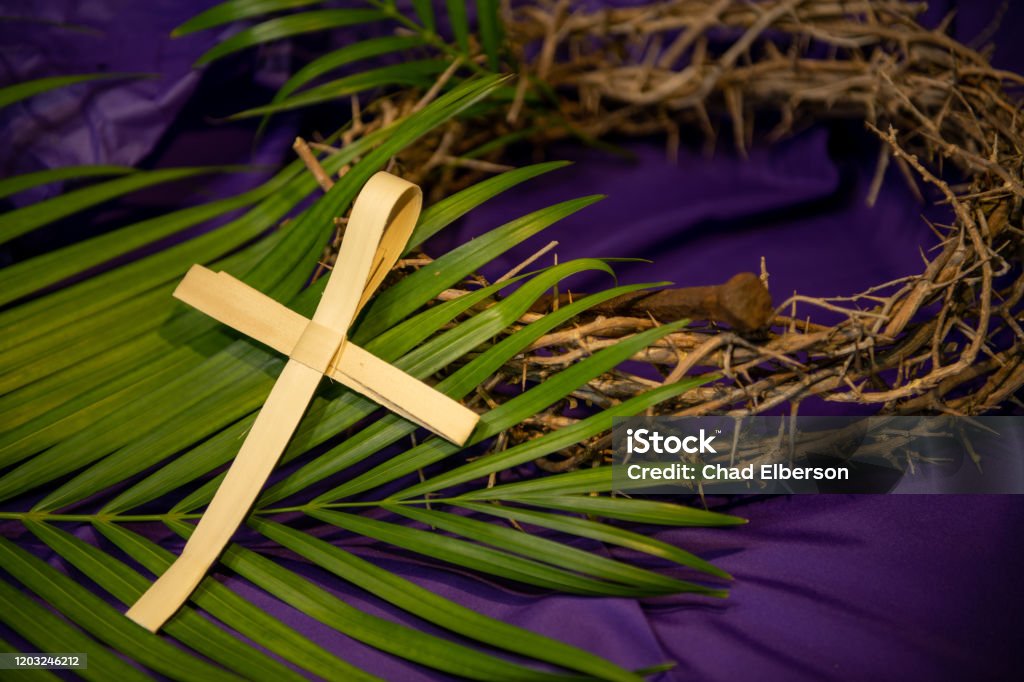
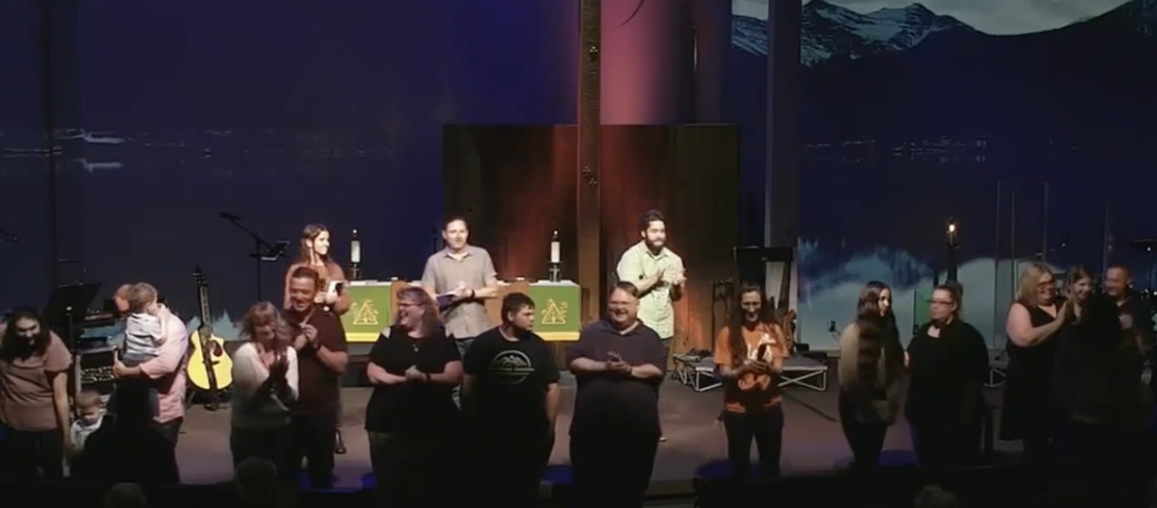
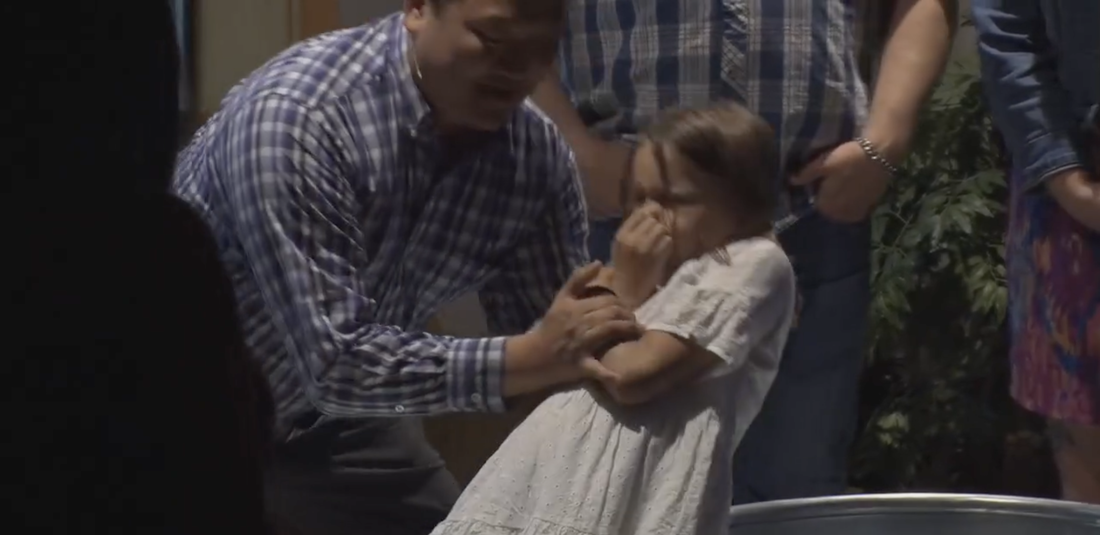
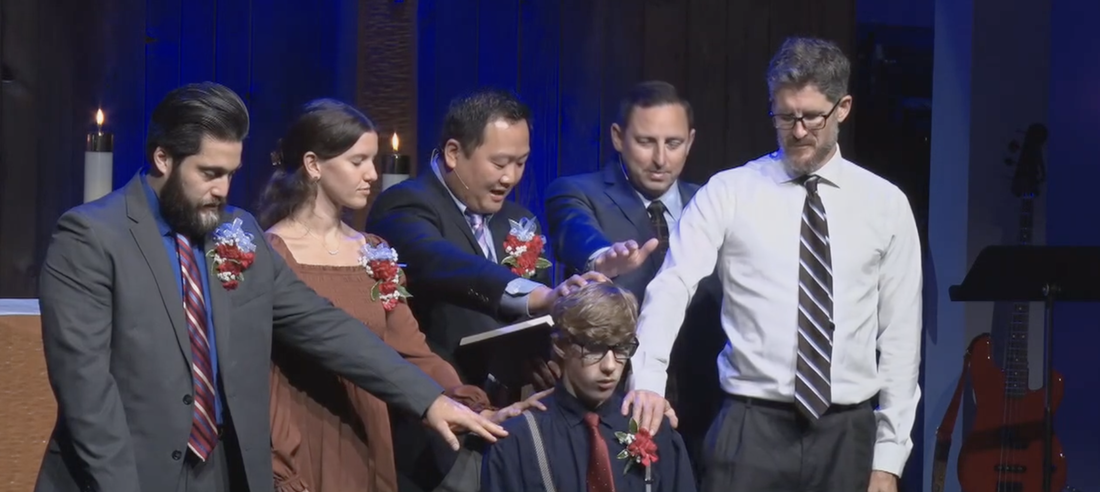
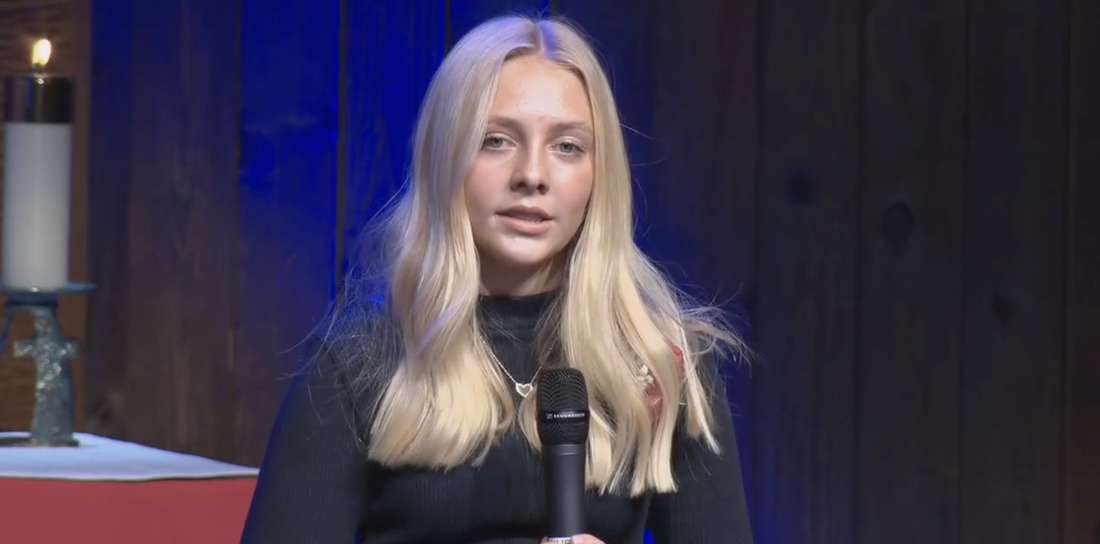


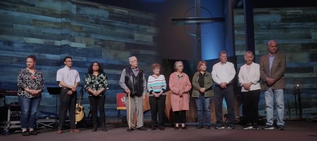


 RSS Feed
RSS Feed